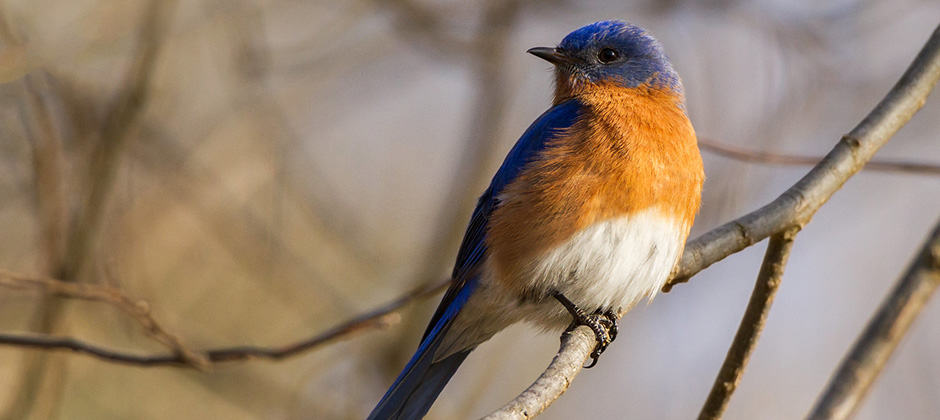Share this article
Bluebird cares for another species’ offspring
Researchers captured footage of a male eastern bluebird (Sialia sialis) feeding young tree swallows (Tachycineta bicolor) while studying the effects of gas compressor noise on songbird reproduction behavior in nest boxes.
This isn’t the first time interspecific feeding has been documented. “It’s not earth shattering. There have also been other observations in the literature of cross species parental care,” said Avery, an assistant research professor of wildlife conservation at Penn State University. “But this is the first inside view of the nest that shows how much they’re doing it, the level they were caring for other young, and the history of the site that might have led to this behavior.”
In their study published in the Wilson Journal of Ornithology and led by then masters student Danielle Williams, the team was testing whether compressor noise from Marcellus Shale natural gas development in Pennsylvania could disrupt songbird nesting behavior.
They played recordings of gas compressor noise through speakers placed behind nest boxes and they also had an equal number of boxes with no noise. In order to observe behavior in the boxes, the team placed cameras inside and checked the video during incubation, when nestlings were young, and again when the nestlings were older.
While reviewing the video, the researchers discovered interesting feeding behavior in a previous bluebird nest box now occupied by tree swallows. A male bluebird, that was now staying in a neighboring box with a partner, was feeding the offspring in the tree swallow box next door. “He was spending all of his time at this other clutch of young, doing all the parental duties a true parent would have,” said Avery, a co-author of the study.
A lot of birds can’t tell the difference between their own nestlings and other species’ nestlings, he continued. They hear begging calls and this elicits parental behavior. “We think this bird remembered having been in this box where he heard all those nestlings,” he said. “It was tricked into thinking they were his chicks.”
What was even more surprising, though, was the male bluebird was going in and out of the nest box at the same time the tree swallow parents were. Neither species appeared to be perturbed, he said, but instead were engaged in cooperative care for the young.
“Being able to say why animals make the decisions they make is incredibly important for understanding animal behavior,” Avery said. “A lot of the things we’re doing are changing the landscape and changing environmental conditions.” This makes it even more important to understand behaviors of birds and how they may change.
Avery said there may also be some sort of connection between noise pollution and this cooperative care. “There’s a possibility that some of that noise may have made it harder for [the male bluebird] to differentiate,” Avery said. However, the team didn’t yet study this. “I think the more we find out about how noise impacts songbird communities, the more we can find out about how much it interferes with their ability to recognize their own young and nestlings.”
The research on noise pollution is ongoing, but Avery and his colleague Margaret Brittingham will eventually conduct the noise pollution study away from nest boxes and in forest bird communities.
Header Image: A male bluebird fed young tree swallows living in a nest box it used to occupy. ©NPS, N. Lewis.








